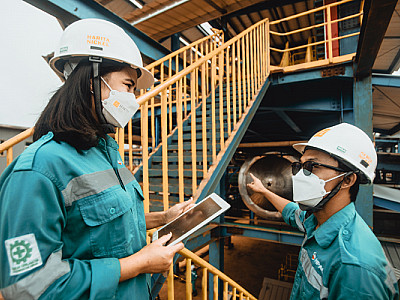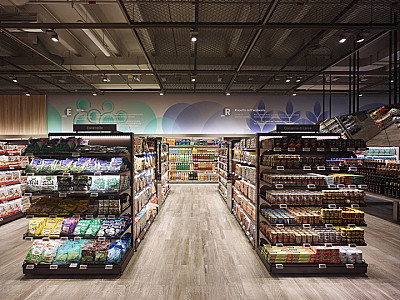Indonesia Wants its Groceries Faster Than Ever
The technological advancement and current pandemic situation had left a huge impact towards the advancement of the e-grocery industry. Here's what you should know.



Indonesia is expected to become one of the top players in electric vehicles within the next five years. Demand for nickel (the main component of producing EV batteries) is expected to yield a CAGR of 8% with production and sales of electric vehicles as its main driving force. In order to realize this dream, the Indonesian government has founded IBC (Indonesia Battery Corporation) as the main company that would take control of the production of EVs in the country. IBC has received support and is collaborating with numerous foreign companies in order to help and speed up the development of EVs in the country. Let’s take a look at how the role of foreign investment impacts the EV industry in Indonesia.
Past projects suggest manufacturing laterite ores via HPAL proved to be too difficult and expensive to handle. This is due to the fact that HPAL requires very large processing facilities that can handle hot corrosive slurries, which proves its challenge for many countries. At this moment in time, Tsingshan, a Chinese manufacturing company that specializes in the production of stainless steel, has invested a total of USD $7.0bn. The amount of money can help IBC and Indonesia in terms of setting up the appropriate infrastructure and employee-training facilities to ensure a smooth and successful HPAL process. IBC alongside Tsingshan promises to deliver an effective and efficient partnership in terms of output and costs, that would help Indonesia to improve the quality of its batteries, whilst reducing costs to attain higher margins than any other country.
Due to its high costs, investments from abroad are key in building an effective and working EV infrastructure. IBC and PT. Aneka Tambang (ANTAM) has pursued a partnership with Contemporary Amperex Technology Co., Limited (CATL), an EV battery producer from China, to build an EV battery factory that is valued at over USD $5.97bn. The amount of money invested will be used for several projects, which include a nickel mining infrastructure (approx. worth USD $1.5bn - $2.0bn), smelter construction to produce a concentrated M-Sulphate Nickel (approx. worth USD $1.5bn). It is known that the role of foreign investment, being CATL, is crucial in terms of actually creating the infrastructure and operating system for Indonesia to be able to utilize its rich nickel resources.
It is undeniable that Indonesia’s abundant nickel resources act as the key driver of attention and attraction. It is estimated that by late 2021, the amount of capital that has been injected into Indonesia is at USD $8.7bn, or equivalent to Rp 123.97 trillion (exempt from internal investment from IBC and LG). According to Bahlil Lahadalia, the Minister of Investment/Head of Investment Coordinating Board, precursor and cathode plants will start to operate, and by 2023, the entire electric car ecosystem (from upstream all the way to downstream) will begin to carry out the production stage due to investment these foreign stakeholders provide to the country.
We will give you updates of our latest news
The technological advancement and current pandemic situation had left a huge impact towards the advancement of the e-grocery industry. Here's what you should know.

GoTo is set to IPO in the Indonesian market. Here are some facts you need to know.

The Dark Store appearance is seen as the e-grocery supply evolution, here’s what you need to know.

Although the 5G network has been around for a while, the world appears to be pessimistic about how much profit it can gather. Does Indonesia have a similar opinion?
